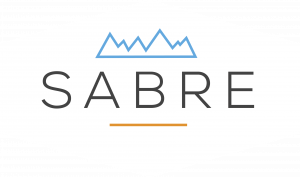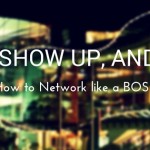Mastering your 30 Second “Commercial” like a Pro
In most formal networking events we are presented with an opportunity to share what we do in 30-60 seconds. In these moments, a well-crafted message can help us make connections with other people in the room. It can also help us get referrals or other support from our networking partners. A great marketing message can make us stand out and instantly become memorable.
However, most networkers struggle with their 30-second commercials.
Some are nervous speaking in front of groups. Others have a hard time getting all of the information into such a short amount of time. It can really be a challenge to put together a message that captures the attention of the listeners and gets them to take the next step with us. And, when we share our messages, THAT is exactly what we all want.
So, how can you create a commercial that gets peoples’ attention and causes them to take action?
5 things you MUST know in order to create an effective 30-second commercial
#1 Shift your Perspective
 It’s NOT a commercial! What?! I know.
It’s NOT a commercial! What?! I know.
I JUST got through calling it a 30-second commercial. So what the heck am I talking about? Well, let me clear up the confusion.
Most networkers call the 30-60 second statements we make at networking events “commercials” or “elevator pitches”. Since those are the words you’re used to, those are the words I used. But, as a wordsmith and communication expert, I can tell you these are words that don’t work. Why?
When you hear the word “commercial”, what do you think of?
Enter Norman Bates with his psycho knife (Ee! Ee! Ee! Ee! Ee! Ee! Ee!) ….SELLING!
That’s what we think of. And how do YOU feel about being sold to. How does it feel to you when you hear 30-70 people “pitching” their products and services at you? Aren’t you sick of it? Don’t you feel like,
“Oh God! Here comes another frickin commercial!?”
Of course you do! We’re all bombarded with sales pitches and commercials all day, every day and we are DONE with it. The last thing on earth we wanna do is pay money to spend an hour or two listening to MORE selling. When you think of it as a commercial, you end up selling and that is highly annoying to everyone in the room.
And, there is another BIG problem with selling or pitching your products and services at networking events.
And here it is… no one came to the networking group to become a customer!
When you decided to go out networking, weren’t you looking to make new connections, get referrals and hopefully gain some new customers? You didn’t go to the networking group saying “I’m excited to find out who I can buy something from today!” did you? So, understand that no one else did either.
They came to the networking group for the same reasons you did. And that means they aren’t looking to become your customer. Since that isn’t their goal, many times they will tune you out, or worse get totally annoyed with you for making them feel uncomfortable.
So, instead of thinking of your statement as a “commercial” or “pitch”, think of it as a MARKETING MESSAGE.
Instead of seeing your networking partners as potential customers, think of them as referral partners. Now, logically, many people already know this. They know they aren’t supposed to be selling to the people in the room. And yet, when they get up and deliver their message, the words they choose end up making everyone feel as if they are being sold to, even when that isn’t the intention. Let me tell you why.
Most networkers get up and say things like,
“Hi, I’m Joe Smith and I can help you save money on your printing needs.” Or “Let me show you how you can get more for your money on your insurance.”
These statements speak to the people in the room as potential customers. There is ONE word that immediately tells everyone that you’re selling at them…
”YOU”
As soon as you use the word “you” in your marketing message, everyone feels as if you are selling at them. They will feel annoyed or tune you out. PLUS, even if they DO listen to your message, they will only be thinking about themselves. They won’t think about any of the other people they know that they could be referring to you! And TRUST ME, you WANT them to think about people they know. If they don’t, you will be missing out on HUGE opportunities!
Most people know 200-300 people. That means, that if I’m in a room with 60 people and I speak to them as potential customers, at best, I can gain 60 customers because the word “you” makes them think only of themselves. But if I speak to them as referral partners (by getting rid of the word “you”), I will be accessing the 200-300 people they know as well. Do you know how many people that is?
12,000 – 18,000!!!! That is a LOT of people. 60 or 12,000. Which would you prefer?
So, instead, talk to them like referral partners. Tell them what group of people you help and who they can refer to you. Using the examples above, here is how that might look: “Hi, I’m Joe Smith and I help small business owners save money on their printing needs.” OR “I enjoy showing drivers how I can save them money on their insurance.” THESE statements tell the people in the room who you help. They won’t feel like you’re selling at them. AND they will think beyond themselves to the other people they know that might need what you have to offer.
This ONE shift can make a MASSIVE difference in your ability to get more out of your networking efforts. Once you have made this shift, all of the other steps below become much easier to do and much more helpful.
#2 Winging it DOESN’T Work!
You’ve got to set goals and practice! Before you walk into any networking situation, take some time to think about what you want to achieve during that time. Don’t just do this occasionally. Make a habit of it. Make it a part of your strategy for networking.
habit of it. Make it a part of your strategy for networking.
You cannot create an effective marketing message if you don’t know what you want people to DO, THINK or FEEL as a result of hearing it.
Do you want them to sit down with you in a 1-on-1?
Do you want them to refer someone to you?
Do you need mentorship?
Do you need help with finances for your business or advice for hiring?
What do you want to get out of that particular networking experience? And, remember from tip #1, it won’t always be new customers. It won’t always be the same thing that you want either. So, take some time to evaluate your business. What are the areas where you could use the most help? Some of your networking partners either ARE the ones you can get help from or they KNOW someone you can get help from. We are networking in order to build business and building business means a LOT more than just getting customers. (But, that’s a conversation for another time.)
Once you are clear about what you want, develop a CALL TO ACTION. What is that? A call to action is exactly what it sounds like. It is a statement that calls your listeners to take a specific action PREDETERMINED by you.
If your goal is to schedule more 1-on-1s, your call to action may be
“I’ve set aside 10 slots in my calendar for 1-on-1s. Schedule with me today.” Notice that I didn’t suggest just telling people “schedule with me”.
A call to action is much more effective when you get people to commit in some tangible way. Signing up on a sheet. Putting you in their calendar. You’ve gotta get people to move now, and that won’t happen unless you TELL them what you want them to do. So, don’t just wing it. Think before you go. What do you want them to do. Then, practice! You can use the recorder on your phone to practice what you’ll want to say. That way, you’ll find out how long you’re going and you’ll be able to adjust what you’re saying before you get there. The more times you think it through and practice it, the more natural it will feel when it’s time to share it.
When you can state clearly who you help and what you want, your networking partners will feel your confidence and they will be much more likely to trust you and have confidence in your abilities. So, don’t lose this opportunity to establish trust. Take time before you go. Get prepared. And PRACTICE!
#3 Be SPECIFIC
I’m gonna make a bold statement here.
The ability to be specific is one of the greatest skills that will help you achieve your goals in your business and in your life! Yep! I said it.
Business strategy is great.
Understanding marketing and sales is critical.
Having great customer service is a must!
But, if you lack specificity – in your goals; in your communication; in your legal documents; in your instructions to your employees and customers – NONE of that will matter! So learn how to be specific!
Now, I could talk about specificity for quite a while so, we’re gonna have to reserve some of this conversation for another article. Today, we’re talking about specificity as it applies to your marketing message (not commercial… remember?).
 When you only have 30-60 seconds to share a message that will hopefully get people into action, EVERY WORD MATTERS! You cannot afford to use any words that don’t give your listeners valuable information. Every word should have a specific purpose in the message toward that specific goal you set before you walk into the networking event. You have to be VERY specific about WHO you help.
When you only have 30-60 seconds to share a message that will hopefully get people into action, EVERY WORD MATTERS! You cannot afford to use any words that don’t give your listeners valuable information. Every word should have a specific purpose in the message toward that specific goal you set before you walk into the networking event. You have to be VERY specific about WHO you help.
Get rid of the words “anyone who” or “people who”.
If you have to use those phrases, you are NOT being specific enough. For instance, if you have a real estate business and you are saying “anyone who is looking to buy or sell a home” you are NOT gonna get very many referrals no matter how amazing you are! Why? Because “anyone who” does not make me think of anyone specific that I know.
Now, if I happen to have a friend who just happened to mention they were thinking about buying a home, I MIGHT connect them to you – IF you have already built trust with me and I am confident in you as a realtor. But, let’s be real! As a Dynamic Presentation Coach who is not connected at all to the real estate industry, how often do you think I hear someone say they are THINKING about buying a house? And how often do you think (even if I DO hear those words) that a situation comes up where there isn’t already a realtor involved? So that just isn’t going to help you very much. But there are tons of ways you could help me connect you to people that could really benefit you.
If you get more specific, I can think of people connected to what you are saying. For example, what if you said “I specialize in helping snowbirds find that perfect home to come to during those cold winter months.” NOW my brain can think of other companies and services that are connected to snowbirds. NOW I can refer people to you that are in a natural position to hear about new snowbirds moving into town. They will be MUCH better referral partners for you than me, and because you were SPECIFIC, I could think of them and connect you.
Now, I know that all of this is easier said than done. That’s why I get paid the big bucks J. But ANY move for more specificity will help. But let me be VERY clear. More specificity does NOT mean more words. It does not mean tell us EVERY aspect of your business or describe EVERY detail about the people you serve. It means to use words that give us more of a mental picture of what you’re talking about. The more we can “see” it, the more likely we are to respond. So, use visual, sensory and concrete words. Instead of saying “I represent a product that gets rid of acne.”, say “I help teenage girls get rid of that frustrating acne that never seems to go away, no matter what they do.” I can see the girl with acne. I can see her trying a million products and other solutions. I can see her frustration as nothing works. And if I know a teenager or if a friend of mine has a teenager, I WILL think of them. So, this is the Jerry Maguire moment. If you want me to refer “Help me help YOU”. Make it easy for me to know WHO you want me to refer. Make it easy for me to understand what you can do for the people I know. Make it easy for me to feel confident in your abilities. THEN, it will be easy to refer.
#4 ALWAYS say your name and company at the beginning AND the end.
Ok. This one is pretty simple. And yet MANY networkers don’t do it!
Usually networkers will start by introducing themselves at the beginning of their message. And then they go on to give more specifics about what they do. A lot of times, they will say something that peaks my interest and now I’m poised and ready to write down their info. And then, the message ends and…nothing. No name. No company. And I’m going CRAP! What did she say her name was? Sometimes there are over 50 people in a room. So there is no guarantee that I will see them after the meeting is over. If I don’t happen to find them, they just lost out on a possible referral or sale.
There are MANY potential dis tractors at a networking meeting. Maybe the waiter was delivering food when you started talking. Maybe people near me were talking too loud for me to hear. Maybe you weren’t speaking loud enough when you first started. There are tons of reasons I might not have heard your name and company in the beginning of the message. So, you want to give yourself a better chance of being heard and recognized.
When you say your name at both the beginning AND the end of your marketing message, you have doubled your chances that I have heard and will remember.
#5 Live it to Give It
What the heck does THAT mean Kristin? I’m glad you asked. This phrase has become my mantra.
 I always share it whenever I do talks at different events because it is CRITICAL to effective communication. So, let me answer the question.
I always share it whenever I do talks at different events because it is CRITICAL to effective communication. So, let me answer the question.
Live it to give it means this: In order to give anyone an experience through your communication, you have to be having that experience yourself.
If you want people to be excited, YOU have to be excited.
If you want people to feel comforted and safe, YOU have to feel comforted and safe.
You CANNOT give people an experience you are not having yourself.
AND, whatever experience you are having, you WILL communicate it, whether you want to or not!
So, if you get up in front of a networking group to share your 30-60 second marketing message and you are freaking out inside because everyone is looking at you, what are you communicating?
Fear. Nervousness. Discomfort. Whether you want to or not.
If you get up and share your message, but you’re not sure what you’re gonna say and you’re distracted by trying to find the right words in the moment, what will you communicate? Distraction and disconnectedness from the message. If you are feeling sad or upset when you get up to share your message, you will translate that. Whether you want to or not!
So, the important message here is, make sure that when you get up to share your message you are filled with the emotion you want other people to experience.
Tap into previous experiences where you can strongly feel that emotion. If you want people to be excited about the results that can come from your product, remember a time when someone you personally know and care about got great results and called you up excited about it. If you want people to feel confident in your abilities, relive a moment when you ABSOLUTELY KNEW you had done an outstanding job. Relive a powerful moment and you won’t be able to help but GIVE others that experience. You cannot fake this. You must actually be having the experience. And when you do. So will everybody else.
Live it to give it. Words to live by.
CONCLUSION
And there you have it. 5 things you MUST know in order to create an effective marketing message that compels others to take action.
You have amazing products, services and opportunities. So, don’t let communication blocks be what gets in the way of people being able to benefit from what you offer.
Take the time to learn how to effectively share your message and you will find that you are able to help more people and make a greater difference for those you serve.






